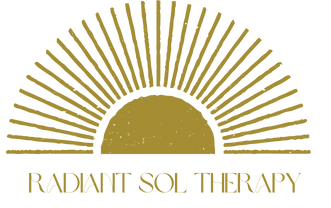
Welcome, I’m Regina!
I'm here to walk alongside you as you rediscover your joy, embrace your true self, and reclaim your voice!
Specialities:
-
The mother wound refers to the emotional and psychological scars left by an unfilled, neglectful, or challenging maternal relationship. It can manifest as feelings of inadequacy, anxiety, feelings of shame and guilt, challenges with decision-making, fear of expressing yourself, and difficulty meeting your own needs.
-
Common forms of childhood trauma include:
Abuse: Physical, emotional, or sexual abuse can cause deep harm to a child, impacting their self-worth and sense of trust into adulthood.
Neglect: When a child’s basic needs like food, shelter, emotional support, or medical care are not met.
Loss or Separation: Experiencing the death of a caregiver, or being separated from parents due to divorce, foster care, or abandonment, can create feelings of abandonment and insecurity.
Witnessing Violence: Exposure to domestic violence, bullying, or violent events can lead to anxiety, fear, or a distorted sense of the world as unsafe.
Parentification: Occurs when a child is forced to take on adult responsibilities such as caring for siblings or providing emotional support to a parent. It can create a role reversal where the child feels more like the “parent” than the “child” which can lead to feelings of guilt, anxiety, and a loss of childhood.
-
Anxiety is a natural response to stress but when it becomes overwhelming, and chronic it can interfere with daily life and well-being.
Common signs of anxiety:
Constant or excessive worry
Restlessness or feeling on edge
Difficulty concentrating or focusing
Irritability or trouble sleeping
Physical symptoms such as a racing heart, shortness of breath, or dizziness
-
Life transitions are significant changes or shifts in a person’s life that can bring a mix of emotions, uncertainty, and challenges. During times of transition, it’s normal to feel uncertain, anxious, or even lost.
Common life transitions:
Marriage, divorce, or relationship changes
Moving to a new city or country
Health challenges
Bereavement or the loss of a loved one
-

Brainspotting
Brainspotting uses eye positions to help the brain process difficult emotions, promote healing, and reduce trauma's emotional charge. It works by identifying and focusing on "brainspots"—specific points in the visual field that are linked to unresolved emotional or physical issues. When a person holds their gaze on these points, it activates the brain's natural healing process, allowing them to access and release deep-seated emotions and memories.
-

Mindfulness
Mindfulness is a compassionate, evidence-based approach that helps individuals manage stress, anxiety, and overwhelming emotions by cultivating present-moment awareness. Rather than getting lost in worries about the future or past regrets, mindfulness therapy teaches you how to stay grounded in the here and now, fostering greater clarity, emotional balance, and self-compassion.
-

Emotion Focused Therapy
Emotion-Focused Therapy (EFT) helps you develop a deeper understanding of your emotions, so you can process and express them in healthier, more adaptive ways. We explore the patterns and experiences that shape your emotional responses, helping you move from feeling stuck to feeling empowered.
-

Cognitive Behavioral Therapy
CBT helps individuals identify and change negative thought patterns, reduces avoidance, and encourages healthier behaviors and coping strategies.
Contact Me
Interested in working together? Fill out some info and I will be in touch shortly. I look forward to connecting!


